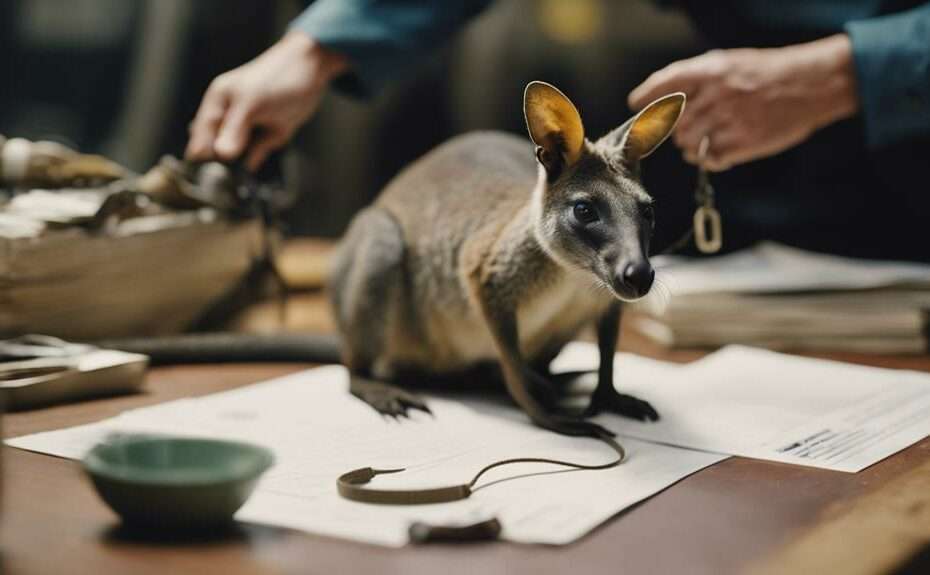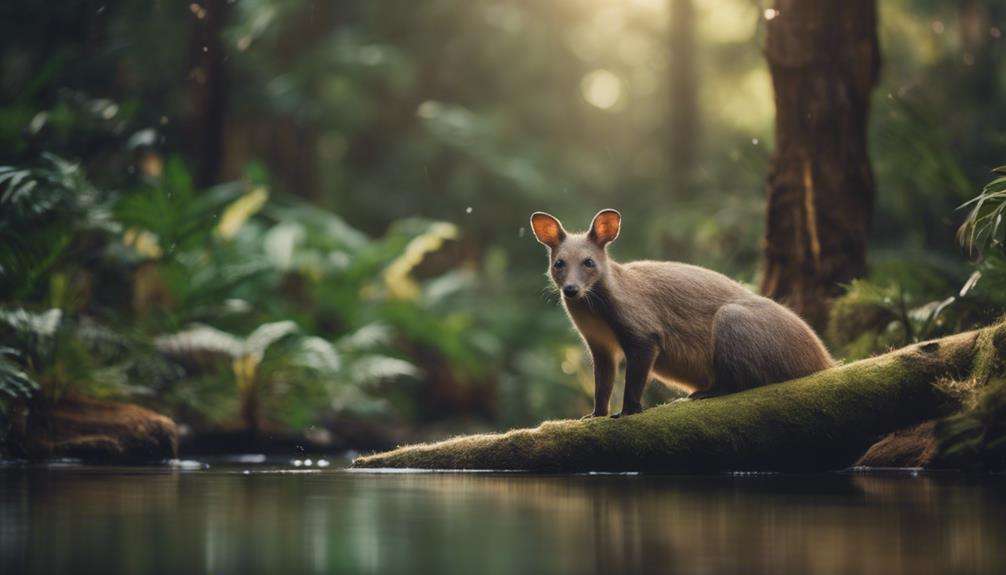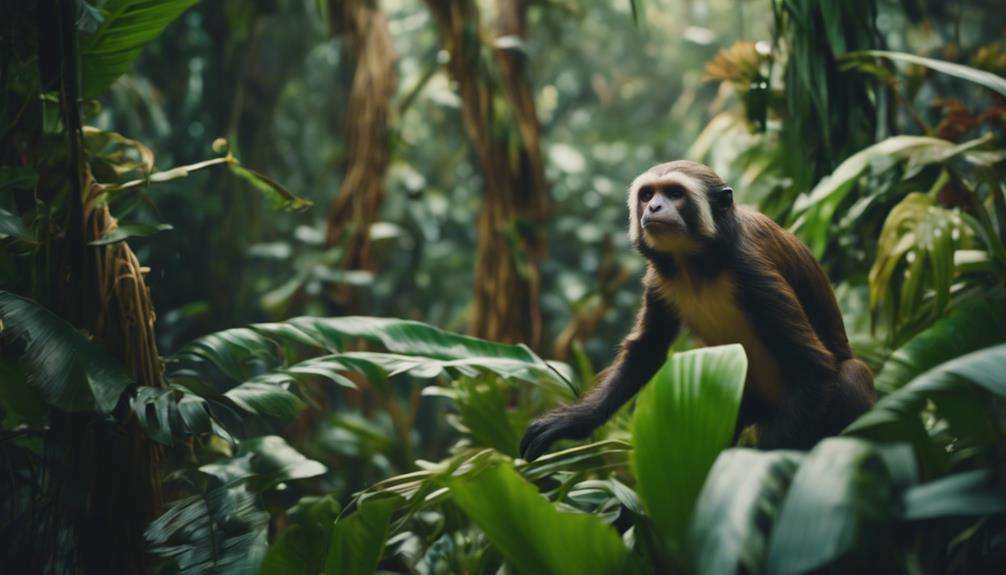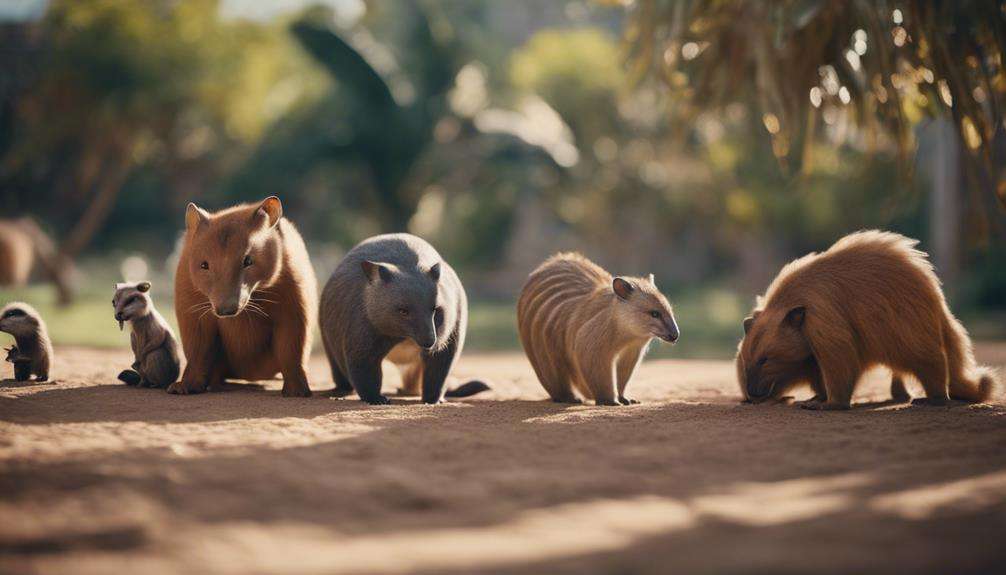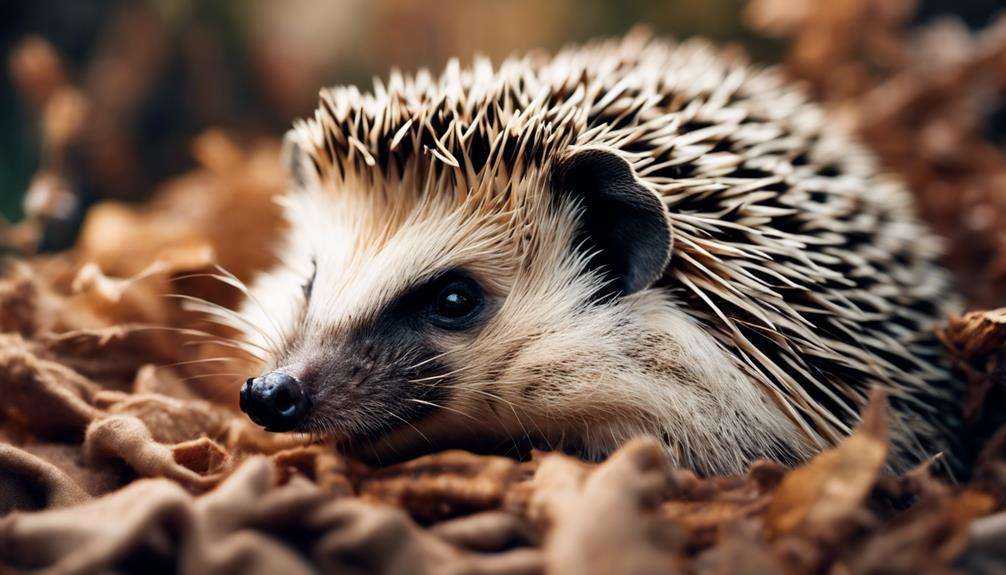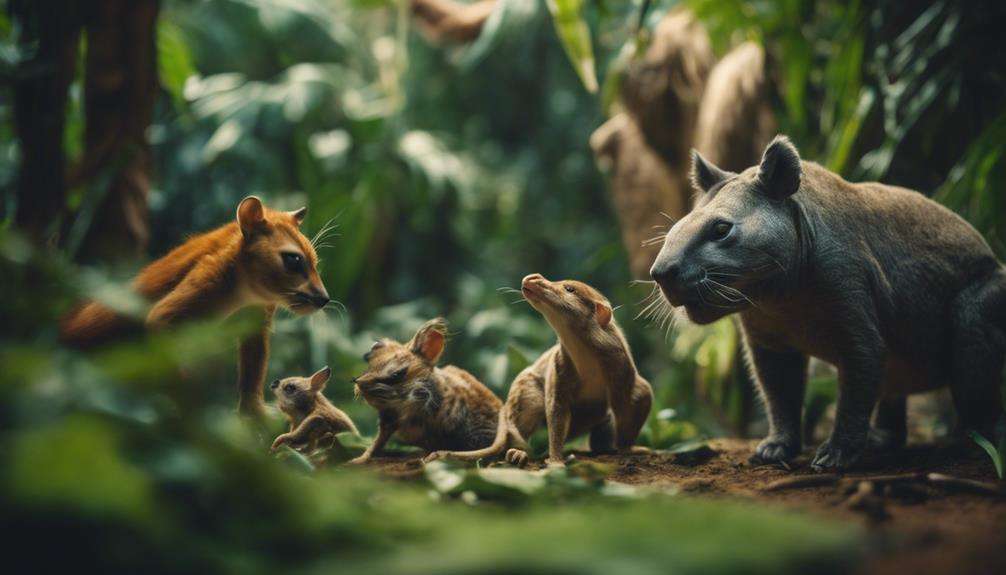Owning a pet is a common joy, but when it comes to certain mammals, the process can be more complex than you might think. Imagine having to navigate a web of regulations just to keep your furry friend at home.
The intricacies of acquiring special permits for these animals are not to be taken lightly. The reasons behind these strict requirements might surprise you, prompting a closer look into the world of exotic pet ownership.
Key Takeaways
- Special permits are necessary for owning big cats, primates, and bears as pets.
- Regulations ensure animal welfare, public safety, and responsible ownership.
- Compliance with permit conditions, registration, and insurance is mandatory.
- Permits play a vital role in preventing mistreatment, trafficking, and endangerment of exotic mammals.
Laws on Exotic Pet Ownership
In some states, owning exotic mammals like large cats, non-human primates, and certain reptiles requires special permits. These permits are essential in regulating the ownership of exotic animals to ensure their well-being and the safety of the public. The regulations surrounding exotic pet ownership vary by state, with specific rules on the types of species that can be owned and the conditions under which they must be kept.
The licensing schemes for exotic pet ownership typically include requirements such as registration, insurance, and facility standards. These conditions are put in place to prevent illegal trafficking, promote responsible ownership, and protect both the animals and the community. By implementing permit systems, authorities aim to monitor and control the ownership of exotic mammals to prevent mistreatment and ensure that these animals receive adequate care.
The primary focus of these laws on exotic pet ownership is to uphold animal welfare standards, reduce the risks associated with owning large cats, non-human primates, and reptiles, and create a safe environment for both the animals and the public.
Special Permits for Mammals
Special permits are mandated for individuals seeking to own mammals such as big cats, bears, and non-human primates in various states to ensure the animals' proper care and safety. These permits are part of state regulations on exotic animal laws, designed to monitor and regulate exotic pet ownership.
To obtain a permit, owners typically need to demonstrate suitable conditions for the animal's welfare, pay fees, and carry liability insurance. Legal requirements must be met to ensure the well-being of the animals and comply with specific conditions for ownership.
Licensure schemes play a crucial role in preventing dangerous interactions, protecting both animals and humans, and promoting responsible ownership of exotic mammals. By having special permits in place, authorities can enforce regulations more effectively, preventing illegal trafficking and the mistreatment of these animals.
Responsible ownership is key to maintaining the health and safety of both the exotic mammals and the community.
Exotic Mammals Requiring Licenses
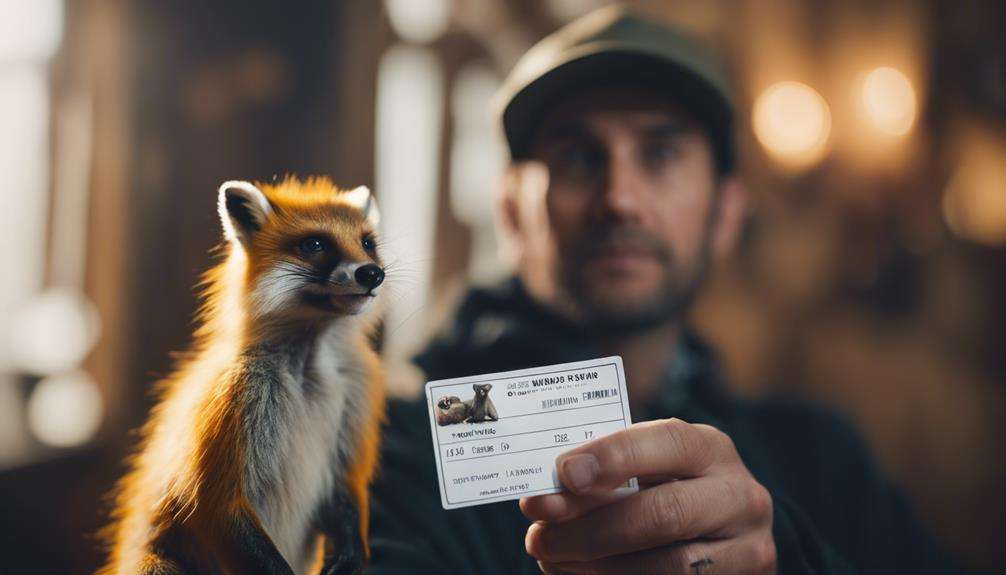
Exotic mammal ownership regulations often necessitate specific permits, outlining stringent criteria and guidelines to ensure proper care and public safety. In many states, private ownership of exotic mammals such as big cats, primates, and bears requires special permits. These permits are designed to regulate the ownership of potentially dangerous animals and protect both the animals and the public.
State regulations specify the types of permits needed for different exotic mammal species, with requirements often including demonstrating proper care, suitable facilities, and insurance coverage. Some states have prohibited the ownership of certain exotic mammals entirely due to safety concerns, while others allow ownership under strict regulations and permit conditions.
Obtaining a permit for exotic mammal ownership involves meeting specific criteria and following state guidelines to ensure animal welfare and public safety are upheld. It's crucial for exotic mammal owners to adhere to these strict regulations to promote responsible ownership and prevent incidents that could endanger both the animals and the public.
Legal Requirements for Exotic Pets
When considering legal requirements for keeping exotic pets, it's essential to understand the specific regulations set by each state to ensure compliance and responsible ownership.
- Special permits are required for owning exotic pets in various states, such as for restricted wildlife like non-human primates, large carnivores, and venomous reptiles.
- Different states have specific regulations on the possession, sale, import, or export of certain exotic animals, with permits available for specific purposes.
- Permits may be necessary for the ownership of Class I, II, and III wild animals, including large cats, bears, and dangerous reptiles, depending on the state.
- Some states have straightforward laws prohibiting the possession and breeding of dangerous wild animals, with exceptions for specific hybrids and organizations like zoos.
- Licensing schemes aim to regulate and monitor exotic pet ownership, requiring owners to meet legal requirements for animal welfare, insurance, and suitable care conditions.
Understanding the legal landscape surrounding exotic pet ownership is crucial to ensure the well-being of these animals and compliance with state regulations. Make sure to research and adhere to the specific laws in your area to responsibly care for your exotic pet.
Mammals Demanding Special Permissions
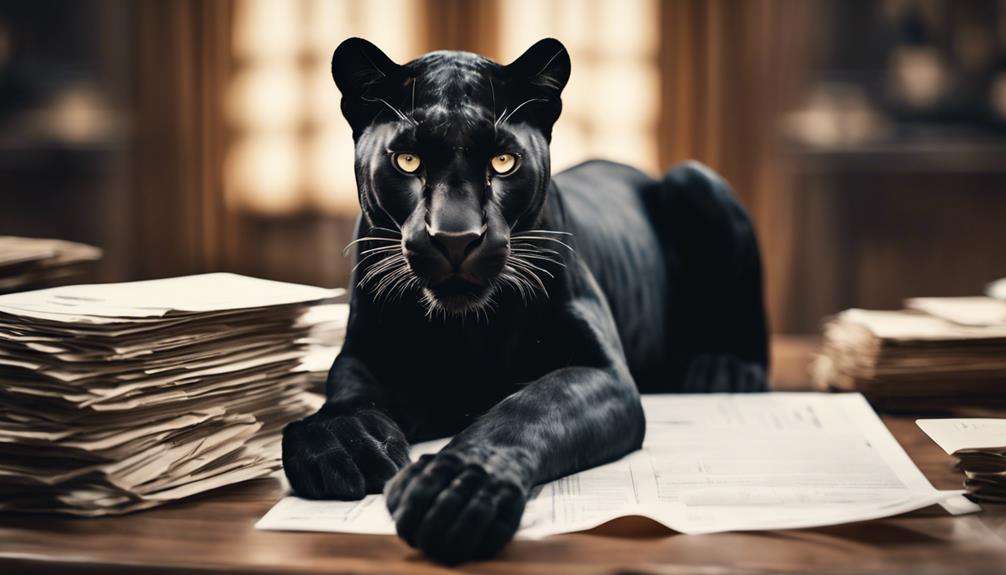
Certain mammals such as big cats, primates, and bears necessitate special permits for private ownership in states with regulations on exotic animal possession. States with partial bans may allow small primates ownership with specific restrictions and permits to uphold individual rights to pet ownership.
Licensure schemes in 14 states regulate private ownership of exotic mammals, ensuring owners meet legal requirements for animal welfare and care. These regulations aim to prevent illegal trafficking and mistreatment of exotic mammals by mandating owner registration, demonstration of suitable conditions, and the presence of liability insurance.
Permits for Keeping Exotic Mammals
To ensure the proper care and safety of exotic mammals like big cats, primates, and bears, obtaining special permits is mandatory in certain states.
When it comes to keeping these fascinating creatures, several important points must be considered:
- Permits may be required based on the specific categories of exotic mammals, considering factors like potential danger and conservation status.
- Demonstrating adequate facilities, expertise, and financial responsibility is often necessary for obtaining permits for exotic mammal ownership.
- The aim of permit requirements is to regulate private ownership, prevent illegal trafficking, and safeguard both animal welfare and public safety.
- Failure to secure the necessary permits for keeping exotic mammals can lead to legal consequences and potential confiscation of the animals.
- The process of obtaining permits for exotic mammals plays a crucial role in promoting responsible ownership, conservation efforts, and ensuring the well-being of both the animals and the public.
Regulations for Exotic Mammal Ownership
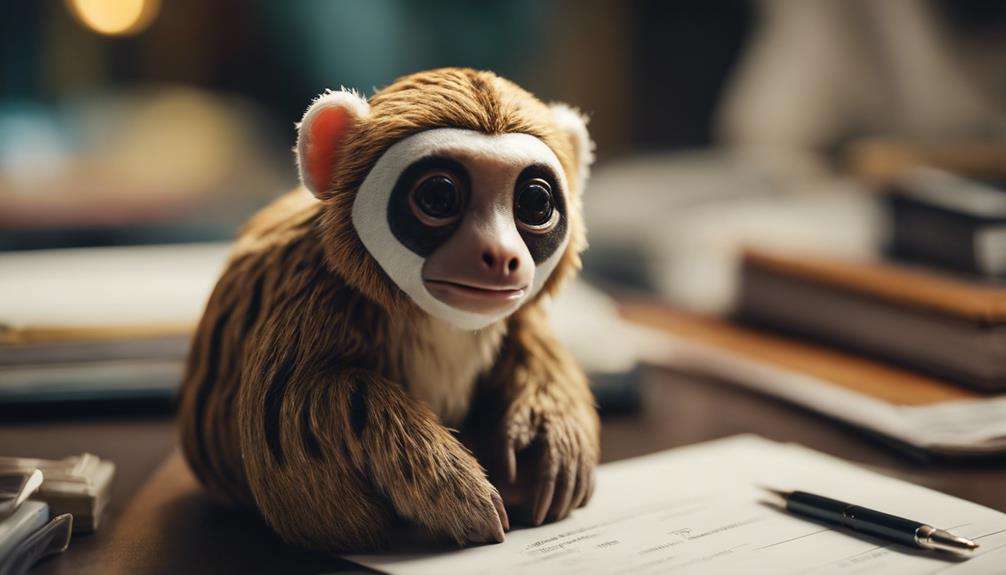
Regulations governing the ownership of exotic mammals, such as big cats, non-human primates, and large carnivores, vary by state and encompass specific requirements for ensuring the animals' proper care and safety. Some states mandate special permits for owning exotic mammals to uphold standards of responsible care and public safety. These permit regulations may differ, with emphasis on housing, veterinary care, and handling to prevent accidents and mistreatment.
Owners of exotic mammals must comply with strict licensing schemes, demonstrating knowledge of species-specific needs and providing suitable living conditions. Licensure is crucial in monitoring and regulating exotic mammal ownership, aiming to prevent illegal trafficking and promote ethical treatment. Permit holders may need liability insurance, adhere to inspection protocols, and follow state laws to safeguard both the animals and public welfare.
Frequently Asked Questions
What States Is It Legal to Own Exotic Pets?
In some states, legal ownership of exotic pets requires special permits due to conservation concerns, public safety, and habitat requirements. Popular species like primates, carnivores, and reptiles may need licensing, vet care, and behavioral considerations.
Why Are Some Animals Not Allowed to Be Pets?
Some animals are not allowed as pets due to risks to public safety, health concerns, specialized needs, wildlife conservation, and ethical reasons. Legal restrictions aim to prevent habitat destruction, illegal trafficking, invasive species, and health risks.
What Exotic Animals Can You Own in Florida Without a Permit?
In Florida, you can own various exotic species without a permit, following regulations to ensure animal welfare and public safety. Ownership restrictions exist for endangered species, but common pets like cats and dogs require no special permits.
Can You Own a Cheetah in the Us?
Yes, you can own a cheetah in the US, but it typically requires a special permit due to their status as exotic and potentially dangerous animals. Legal requirements include strict housing, care, safety measures, and compliance with state-specific laws.
Conclusion
You may argue that obtaining special permits for owning exotic mammals is too burdensome. However, these regulations are in place to ensure the safety and well-being of both the animals and the public.
By requiring permits, authorities can monitor and regulate the ownership of these potentially dangerous animals, reducing the risk of harm and maintaining a balance between conservation and responsible pet ownership.
It's a necessary step towards promoting ethical and sustainable practices in exotic pet ownership.
